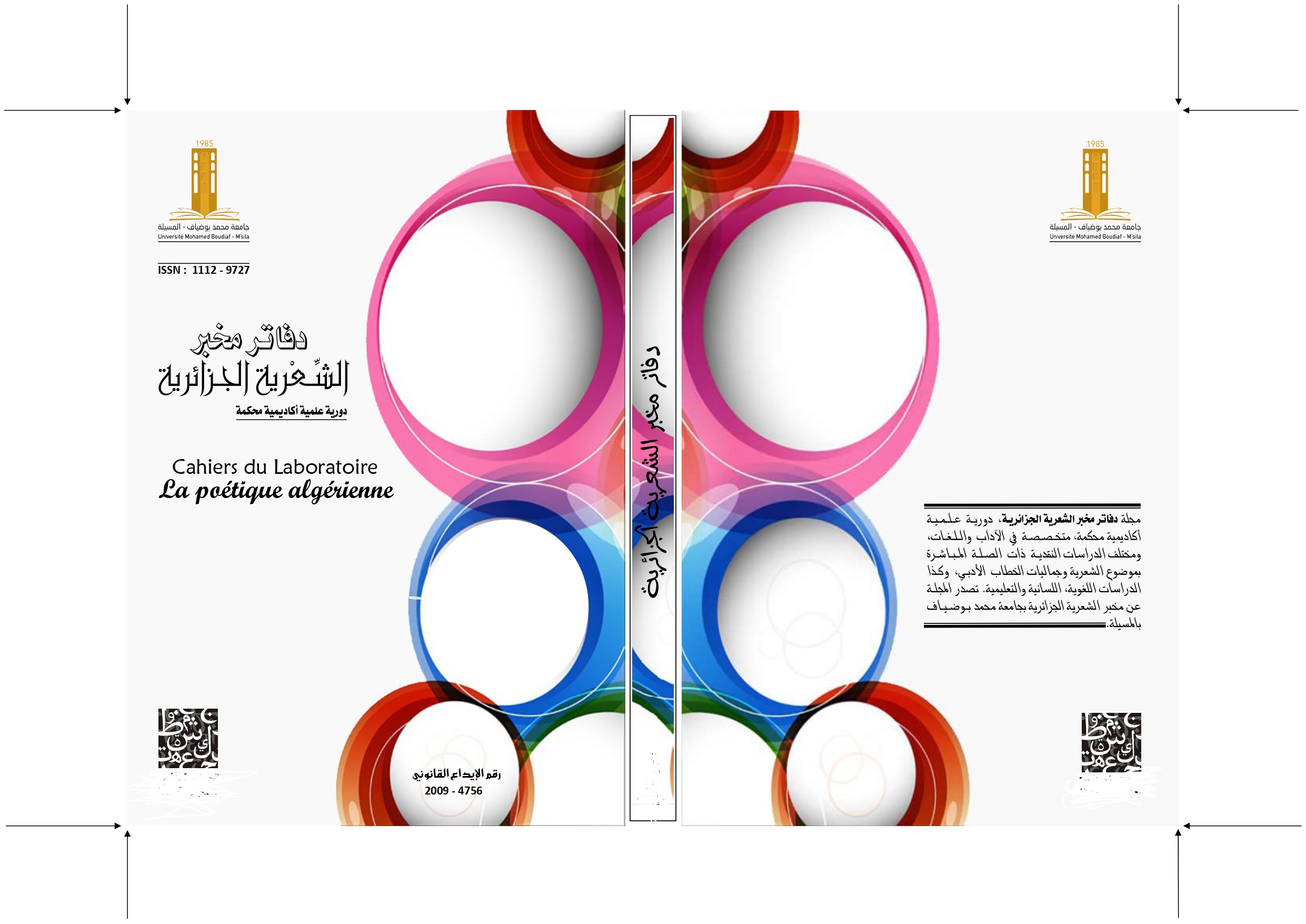The Strategy Of Narrative Fictionalization In Hā’ Wa Asfār Ishtar By Azeddine Djelaouji: A Myth-critical Approach
Keywords:
Fictionalization, space, Character, AzeddineDjelaoujiAbstract
this study interrogates the strategy of narrative fictionalisation in ʿEzzedine Jelawji’s novel Hāʾ wa Asfār ʿIshtār. Close reading shows that myth functions as a marked textual phenomenon shaping the work’s imaginative texture, causing the narrative to oscillate between two distinct paradigms: a traditional paradigm that draws upon the mythological canon, and a modern, experimental paradigm that pursues divergence and carves out a specifically Arab novelistic idiom. Guided by these insights, the research adopts myth criticism as its analytical framework for probing the novel’s modes of narrative creation. The paper therefore unfolds in two parts: the first theorises the conceptual tools of myth criticism, while the second operationalises them in a myth-oriented reading of Hāʾ wa Asfār ʿIshtār. The study yields two central findings. First, the narrator succeeds in casting his vision through a mythic narrative fabric that traverses spaces where the real and the legendary intersect. Second, the text provokes a critical dialogue about the self’s relationship to its world and to the Other.
Downloads





